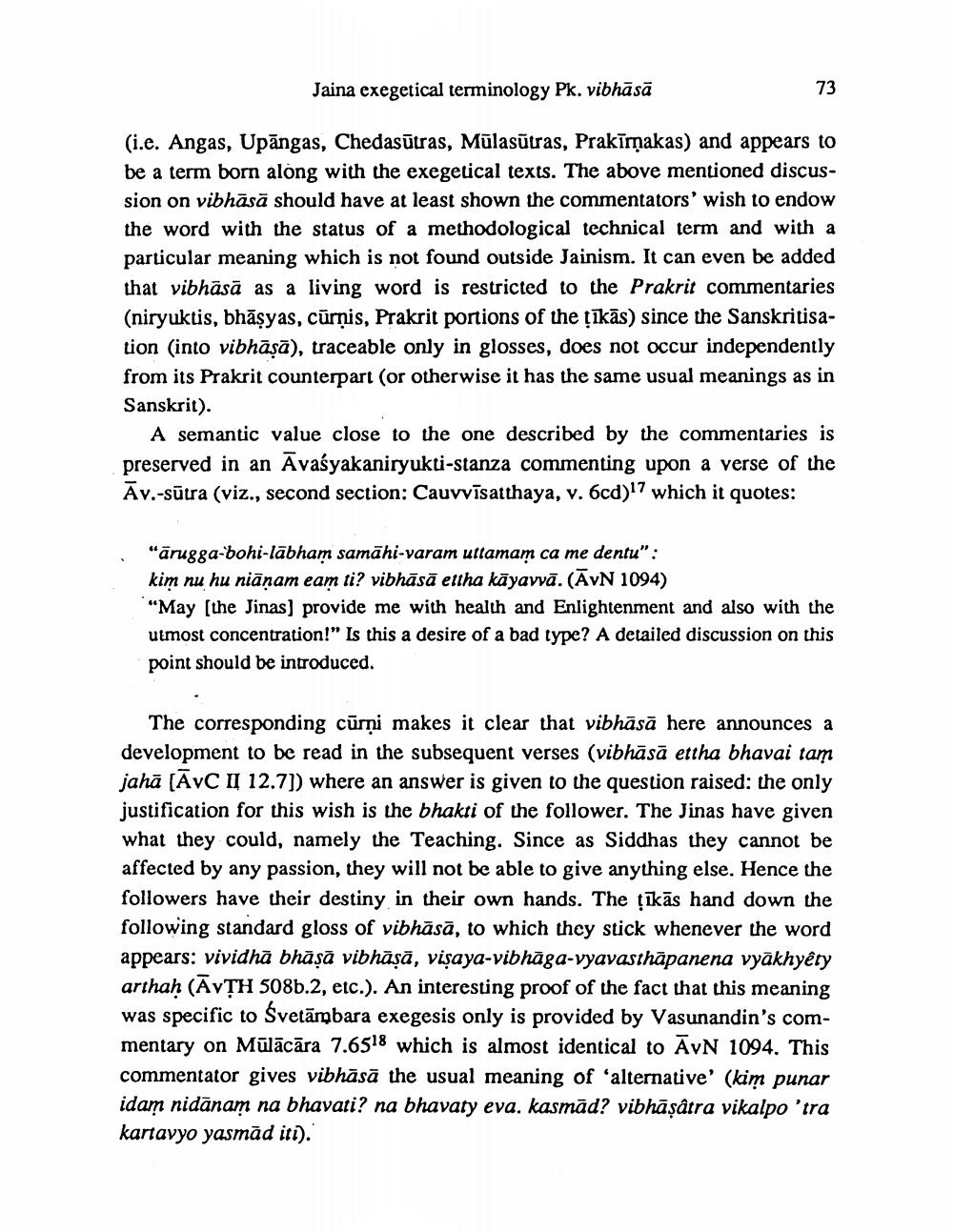Book Title: Jaina Exegetical Terminology Pk Vibhasa Detailed Exposition Author(s): Nalini Balbir Publisher: Nalini Balbir View full book textPage 7
________________ Jaina exegetical terminology Pk. vibhāsā (i.e. Angas, Upāngas, Chedasūtras, Mūlasūtras, Prakīrņakas) and appears to be a term born along with the exegetical texts. The above mentioned discussion on vibhāsā should have at least shown the commentators' wish to endow the word with the status of a methodological technical term and with a particular meaning which is not found outside Jainism. It can even be added that vibhāsā as a living word is restricted to the Prakrit commentaries (niryuktis, bhāşyas, cūrņis, Prakrit portions of the ţikās) since the Sanskritisation into vibhāṣā), traceable only in glosses, does not occur independently from its Prakrit counterpart (or otherwise it has the same usual meanings as in Sanskrit). A semantic value close to the one described by the commentaries is preserved in an Āvaśyakaniryukti-stanza commenting upon a verse of the Āv.-sūtra (viz., second section: Cauvvīsatthaya, v. 6cd)17 which it quotes: "ārugga-bohi-lābham samāhi-varam uttamam ca me dentu": kim nu hu niānam eam ti? vibhāsā ettha kāyavvā. (ĀvN 1094) "May (the Jinas) provide me with health and Enlightenment and also with the utmost concentration!" Is this a desire of a bad type? A detailed discussion on this point should be introduced. The corresponding cūrni makes it clear that vibhāsā here announces a development to be read in the subsequent verses (vibhāsā ettha bhavai tam jahā (AvC II 12.7]) where an answer is given to the question raised: the only justification for this wish is the bhakti of the follower. The Jinas have given what they could, namely the Teaching. Since as Siddhas they cannot be affected by any passion, they will not be able to give anything else. Hence the followers have their destiny in their own hands. The țīkās hand down the following standard gloss of vibhāsā, to which they stick whenever the word appears: vividhā bhāṣā vibhāṣā, viņaya-vibhāga-vyavasthāpanena vyākhyêry arthah (AVTH 508b.2, etc.). An interesting proof of the fact that this meaning was specific to Svetāmbara exegesis only is provided by Vasunandin's commentary on Mülācāra 7.6518 which is almost identical to AvN 1094. This commentator gives vibhāsā the usual meaning of 'alternative' (kim punar idam nidānam na bhavati? na bhavaty eva. kasmād? vibhāşâtra vikalpo 'tra kartavyo yasmād iti).Page Navigation
1 ... 5 6 7 8 9 10 11 12 13 14 15 16 17 18
